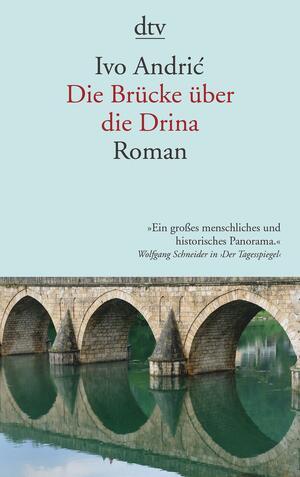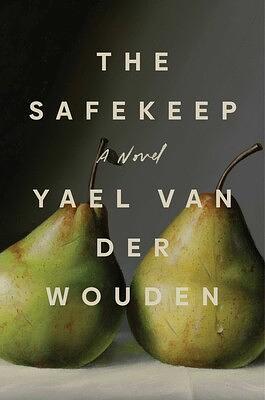#aleksander wat
Explore tagged Tumblr posts
Text
My brain was like "instead of panicking and freaking out about losing all our medications, why not pretend it's the interwar period when those medications hadn't been invented yet :)"
Clownshoes coping mechanism and yet it worked
#Fundamentally I deal with stress by becoming the human incarnation of the Careless Whisper sax solo#Treating high blood pressure like Stefania Zahorska and Aleksander Wat#By taking long constitutionals and adjusting my stupid baka diet
16 notes
·
View notes
Text
The growing TBR Pile : 2024 edition

I'm not a fast reader. Case in point : Storygraph has me pinned as someone reading a book in... 2 months. I say this is slander. I think. I'm not sure. There might be some truth somewhere. But I consume a lot of content either via YouTube or Tumblr about books.
The consequences are dire : my TBR pile grows and grows! So here are some of my 2024 discoveries that I want to read (at some point, I don't know when exactly, it's difficult to say - but it will happen?).
First stop : Bosnian-Croatian-Serbian literature.
At the beginning of the year, I happened on a very short article (in an otherwise very dense newspaper) listing some of the latest translations by a single translator of BCS language. She mentioned the similarities and differences between all those languages, leading me to read more and more about her work and those languages. It made me quite curious about translated literature from that region and ended up compiling a few of them.
Source : interview in French of Chloe Billon, the translator in question, in Pages Sauvages.
Na Drini ćuprija - The Bridge over the Drina -, Ivo Andrić (1945)

The town of Visegrad was long caught between the warring Ottoman and Austro-Hungarian Empires, but its sixteenth-century bridge survived unscathed--until 1914 when tensions in the Balkans triggered the first World War. Spanning generations, nationalities, and creeds, The Bridge on the Drina brilliantly illuminates a succession of lives that swirl around the majestic stone arches. Among them is that of the bridge's builder, a Serb kidnapped as a boy by the Ottomans; years later, as the empire's Grand Vezir, he decides to construct a bridge at the spot where he was parted from his mother. A workman named Radisav tries to hinder the construction, with horrific consequences. Later, the beautiful young Fata climbs the bridge's parapet to escape an arranged marriage, and, later still, an inveterate gambler named Milan risks everything on it in one final game with the devil.
Adios, Comboy, Olja Savičević Ivančević (2011)

Dada’s life is at a standstill in Zagreb—she’s sleeping with a married man, working a dead-end job, and even the parties have started to feel exhausting. So when her sister calls her back home to help with their aging mother, she doesn’t hesitate to leave the city behind. But she arrives to find her mother hoarding pills, her sister chain-smoking, her long-dead father’s shoes still lined up on the steps, and the cowboy posters of her younger brother Daniel (who threw himself under a train four years ago) still on the walls.Hoping to free her family from the grip of the past, Dada vows to unravel the mystery of Daniel’s final days.
Second Stop : Polish literature
I learned a lot this past year about Poland (for personal reasons). I started reading about the history of the country, the language, its culture etc. I was at first quite ashamed to be so oblivious to another country from which quite a few of my friends's family come from, and with which French history is so closely linked. Obviously, I started piling up some polish writers in my TBR as a result.
Bezrobotny Lucyfer - Lucifer Unemployed -, Aleksander Wat (1927)

In these nine stories the Polish writer Aleksander Wat consistently turns history on its ear in comic reversals reverberating with futurist rhythms and the gently mocking humor of despair. Wat inverts the conventions of religion, politics, and culture to fantastic effect, illuminating the anarchic conditions of existence in interwar Europe. The title story finds a superbly ironic Lucifer wandering the Europe of the late 1920s in search of a mission: what impact can a devil have in a godless time? What is his sorcery in a society far more diablical than the devil himself? Too idealistic for a world full of modern cruelties, the unemployable Lucifer finally finds the only means of guaranteed immortality. In "The Eternally Wandering Jew," steady Jewish conversion to Christianity results in Nathan the Talmudist reigning as Pope Urban IX. The hilarious satire on power, "Kings in Exile," unfolds with the dethroned monarchs of Europe meeting to found their own republic in an uninhabited island in the Indian Ocean.
Third and Final Stop : under the Influence
I used to watch TikTok at some point, and most of the content left me frustrated, with a hint of dissatisfaction. But sometimes, sometimes, I happened on a great content creator, full of enthusiasm, or a very very avid reader sharing their love for one book. This, unfortunately, doesn't leave me unbothered. And I do admit, witnessing the passion of someone else about a book, made me want to dive into the novels myself !
Memórias Póstumas de Brás Cubas - The Posthumous Memoirs of Brás Cubas -, Machado de Assis (1881)

Machado de Assis is not only Brazil's most celebrated writer but also a writer of world stature. In his masterpiece, the 1881 novel The Posthumous Memoirs of Brás Cubas (also translated as Epitaph of a Small Winner), the ghost of a decadent and disagreeable aristocrat decides to write his memoir. He dedicates it to the worms gnawing at his corpse and tells of his failed romances and half-hearted political ambitions, serves up hare-brained philosophies and complains with gusto from the depths of his grave. Wildly imaginative, wickedly witty and ahead of its time, the novel has been compared to works by Cervantes, Sterne, Joyce, Nabokov, Borges and Calvino, and has influenced generations of writers around the world.
The Safekeep, Yael van der Wouden (2024)

It is 1961 and the rural Dutch province of Overijssel is quiet. Bomb craters have been filled, buildings reconstructed, and the war is truly over. Living alone in her late mother’s country home, Isabel knows her life is as it should be—led by routine and discipline. But all is upended when her brother Louis brings his graceless new girlfriend Eva, leaving her at Isabel’s doorstep as a guest, to stay for the season. Eva is Isabel’s antithesis: she sleeps late, walks loudly through the house, and touches things she shouldn’t. In response, Isabel develops a fury-fueled obsession, and when things start disappearing around the house—a spoon, a knife, a bowl—Isabel’s suspicions begin to spiral. In the sweltering peak of summer, Isabel’s paranoia gives way to infatuation—leading to a discovery that unravels all Isabel has ever known. The war might not be well and truly over after all, and neither Eva—nor the house in which they live—are what they seem.
#saintsaens reads 2024 edition#tbr pile#tbr list#books#bosnian croatian serbian literature#(is there a tag that relates to them ???)#polish literature#brasilian literature#classic literature
5 notes
·
View notes
Note
Are you one of those Starless (insert whatever) bitches on twitter? The nasty ones that treat people like shit?
ummm...wat?
but if you're really interested, starless saint is one of the Aleksander Morozovas titles, my favorite character from grishaverse book series.
3 notes
·
View notes
Text
Pour un homme d'aujourd'hui, il est extraordinairement difficile de croire en Dieu, mais il est aussi terriblement difficile de ne pas croire au Diable.
Aleksander Wat, Mon Siècle
0 notes
Quote
W czterech ścianach mego bólu nie ma okien ani drzwi.
Aleksander Wat
#aleksander wat#poezja#polska poezja#polskie wiersze#po polsku#cytat#cytaty#cytat z wiersza#q#sentencje#złote myśli#ludzie#świat#życie#życiowe#prawdziwe#taka prawda#tak już jest#smutne#smutek#ból#polski tekst#polskie słowa#polskie zdania
95 notes
·
View notes
Text
Aleksander Wat
Bądź kierownikiem literackim najważniejszego wydawnictwa międzywojnia, Gebethnera i Wolffa, któremu wydawnictwo całkowicie ufa i jego decyzje są ostateczne
Odpowiadaj za przyjmowanie nowych tekstów
Odrzuć "Ferdydurke" Gombrowicza
#literatura xx wieku#aleksander wat#polish poetry#polish literature#interesting#witold gombrowicz#ferdydurke#nawet nie lubię ferdydurke#uwielbiam moją profesor#'i nagle życie in crudo'#kto tak mówi <3#mimo że XX wiek nie jest moim ulubionym
3 notes
·
View notes
Text

Aleksander Wat
Kostium (lub okulary) mam od Balenciagi
8 notes
·
View notes
Text
I became aware of a certain banal truth, one that I had often doubted, namely, that I am a poet
The pendulum of prison time swings between agony and nothingness, but in Lubyanka time has other laws and moves in a different way. But books brought us back to life...I had a great desire to live because I found Nietzsche’s amor fati in every trifle in every book, even the pessimistic ones. The more pessimistic the book, the more pulsating energy, life energy, I felt beneath its surface — as if all of literature were only the praise of life’s beauty, of all of life...Books stimulated a keen desire for life, life of any sort, at any cost, to live and move with the Rastignacs, Rostovs, and even the heroes of Notes from the Underground...A second and opposite effect of reading was that it disordered a prisoner’s mental structure by causing him to experience two entirely different realities simultaneously: the world of books — free, full of movement, light, change, colorful, Heraclitean — and the world where time stood still, lost all sensation in captivity, and faded into a dirty gray. The sum total of both opposed effects worked to the investigator’s advantage because it disturbed the victim’s entire soul. But reading had the opposite effect on me. It marshaled my intellectual and spiritual resources and made me stronger. It truly was like touching the earth for Antaeus. No doubt that was because what I primarily filtered out from books, any sort of book, was the poetry they contained, and it was only in prison that I became aware of a certain banal truth, one that I had often doubted, namely, that I am a poet.
~ Aleksander Wat, My Century (NYRB Classics; December 31, 2003)
1 note
·
View note
Photo

Aleksander Wat
(czytaj więcej / fb)
16 notes
·
View notes
Text
Mal haters are corny, they’re jealous he’s actually a main character that plays a substantial role in the series while the darkling’s like a crusty barnacle that pops up like 4 times or some shit in the rest of the series
#mal oretsev#the darkling#wats his real name... it was real crust#aleksander morozova#ami bein petty#yes#but maybe if u dumbasses didn't exclude him from official shit and artwork we wouldn't be having this converstation#yea i said converstation#anyways
18 notes
·
View notes
Text
Tadeusz spends the new year holidays 1931/32 with Stefania because he adds a post-script on Stef's NYE letter, saying hi to Jelonka in his own hand and wishing her season's greetings. He is bailed out of jail by Wiślicki on 19 November 1932, after "several months of incarceration." Aleksander Wat mentions "another communist" who was arrested with the Miesięcznik Literacki editors during that wave of Sanacja communist crackdown, but held in a separate cell; Tadek was held with a man called Dr. Hoch. If I had access to Warsaw procedural court records I could find out exactly when his trial took place. Also Wat's memoirs are unclear, but from Stef's letters it looks like their (Wat and Ola's) newborn son Andrzej stayed with her for awhile
6 notes
·
View notes
Text
Shrouded in shadows | The Darkling

Gender neutral reader
[Masterlist]
[Previous chapter] - [Next chapter]
Part 24
"What do you mean I don't remember?" You ask, keeping your voice quiet. Your mind was racing and your heart was beating faster than ever.
Still, he looked at you with those big soft eyes.
"You have forgotten who you were, who you are. You have forgotten me, but I feel like we are learning about each other all over again," he says.
You take a step back from him as you try to comprehend what he was telling you.
"So you do know me?" You ask.
"Yes. We have known each other for many years, centuries. It's my fault you can't remember."
"Your... fault?"
He wants to reach out to you and hold you close. He wants to soothe your panicking mind and your stressed heart. He wants to make it all better again.
"What do you mean we have known each other centuries? I know Grisha can live a long life, but not that long."
"You and I are very old. Ancient, even. We are special. Alina will live just as long if she taps into that power of hers properly," he explains, but it still doesn't calm you.
"I don't understand... I don't..." Your head hurts and you can see black spots forming. Breathing is becoming a struggle.
"It was an accident. I never meant to hurt you, ever. All these years I have lived thinking you were dead, but you were here in Ravka all along."
Tears were forming as he tried to explain to you, but his heart hurt just as much as yours did. He just wanted to hold you.
"I don't understand!"
Your knees were buckling. You couldn't stand up for much longer. With a gasp, the blackness ceased your sight and you fell forward. Aleksander rushed forward and caught you, cradling you to him.
He held you against his chest.
"I'm sorry. I am sorry," he kept on muttering in your ears. He couldn't hold back his tears as he pressed his lips to your forehead.
The crowds were exciting the Grand Palace. He had to get you away. Hooking his arm under your legs, he picks you up and make his way to the Little Palace. He heads straight for your room and places you on the bed.
He would get Genya to see to you. He should probably keep his distance for now.
He bumps into Alina along the way back. Quickly, he wipes any sign of upset from his face. He looks ever like the General he usually is.
"You left quickly," she pointed out.
"I had something important to do."
"With them?" Alina asks.
He knew full well she was referring to you.
"Yes. If you'll excuse me," he steps around her and leaves promptly. She wat has him go.
Outside, Baghra stands out of view. She watches the Little Palace with a solemn look upon her face.
She had seen everything.
The confession, the panic, the fainting.
You poor soul. She should have taken better care of you. The day after when she found you alive, but injured, she had seen to it you were taken away from the Fold.
When she discovered you had no memory, she knew it was Aleksander's fault.
If he had known, he could have done so much more damage. He still would.
Baghra returns to her hut.
You're at that little house again. Aleksander is with you. He is holding your hand as he talks to someone. You can't hear him. You feel pain. So much pain. He catches you. Darkness. All you can feel is the dark.
You sit up with a gasp.
You're in your room. It's nightfall. Genya places a damp cloth to your head. You look at her softly.
"I was dreaming..." You mumble, feeling the need to point out the obvious.
"I know. You're safe."
You lay back and place a hand over your chest. You can feel how fast your heart is beating.
Genya sighs as she moves her hand away from you.
"Do you want to talk about it?" She asks.
You shake your head.
"Where is General Kirigan?" You ask her.
"Asleep in his quarters, I imagine."
"You don't have to stay here, Genya. You can leave me be. I'm alright, I promise."
"General Kirigan said you fainted. You've been out all day. I was worried about you... He is worried about you."
You look at her with a forlorn gaze.
"Can I see him?" You ask.
She nods.
Genya stays put as you climb out of bed and grab a robe. You make your way out of your room and down the hall. You look at the two dark doors and stop.
No. No, you didn't want to see him just yet.
You raise your hand to knock, but stop.
Turn around, go back to bed.
You lower your hand and walk away. Your feet carry you outside where you go and perch yourself on a wall.
You needed air.
You needed time.
You needed to remember.
You didn't even realise you were crying until a tear falls against your hand.
You needed rest.
@luciadiosa @fablesrose @mischief-siriusly-managed @aleksanderwh0r3 @charistory @messrsmoonee @edithsvoice @carlywhomever
#the darkling#the darkling x reader#general kirigan x reader#general kirigan#aleksander morovoza#aleksander morozova x reader#shadow & bone
80 notes
·
View notes
Text
Ode

Die môre vroeg het die owerpriesters saam met die oudstes en skrifgeleerdes dadelik as volle raad 'n vergadering gehou. Hulle het Jesus geboei en Hom toe weggebring en aan Pilatus uitgelewer. Pilatus het vir Hom gevra:,,Is jy die koning van die Jode?" Jesus antwoord hom:,,Dit is soos u sê.”
Die owerpriesters het Hom van baie dinge beskuldig. "Pilatus het Hom toe verder ondervra. Verweer jy jou glad nie?" het hy gevra.,,Kyk waarvan beskuldig hulle jou alles."
Jesus het egter niks meer gesê nie, sodat Pilatus verbaas was.
Elke paasfees het Pilatus vir die mense een gevangene, die een wat hulle gevra het, losgelaat. 'Daar was 'n man met die naam Barabbas in die tronk saam met ander opstandelinge. Hulle het tydens die opstand moord ge pleeg. Daar het toe juis 'n klomp mense gekom en Pilatus gevra om vir hulle te doen wat hulle van hom gewoond was. "Pilatus vra hulle toe:,, Wil julle hê ek moet die koning van die Jode vir julle loslaat?"
Die owerpriesters het die mense er om gekruisig te word,
Die soldate vat Jesus toe in die binnehof van hulle hoofkwartier in en roep die hele afdeling bymekaar. Toe trek hulle Hom 'n pers mantel aan en vleg 'n doringkroon en sit dit vir Hom op. "Daarna het hulle Hom begin begroet en gesê:,,Ons groet u, Koning van die Jode!" "Hulle het Hom herhaaldelik met 'n stok oor die kop geslaan en op Hom gopoeg en hulle knieë gebuig asof hulle aan Hom eer wou bewys.
Lode Regina Elisabetta.
"Die soldate het iemand wat daar verbygekom het, gekommandeer om Jesus se kruis te dra. Dit was Simon van Sirene, wat van buite die stad af gekom het, die vader van Aleksander en Rufus.
"Hulle bring Jesus toe na 'n plek Golgota, wat Kopbeenplek beteken. "Hulle wou vir Hom wyn gee met mirre daarin, maar Hy wou dit nie he Tie. Toe kruisig hulle Hom en verdeel sy klere onder mekaar deur lootjies te trek oor wat elkeen moet kry.
"Dit was nege-uur die môre toe hulle Hom gekruisig het.
"Die mense wat daar verbygeloop het, het Jesus gelaster. Hulle het die kop geskud en gesê:,,Toe, jy wat die tempel afbreek en in drie dae weer opbou!
Lode Regina in sempiterno amore Deum grazia RaMa : RaBrand Debibls BaRasels
2 notes
·
View notes
Text
primo maggio
George Inness, Crepuscolo invernale, 1857
La disperazione di Penelope
Non è che non lo riconobbe alla luce del focolare; non erano gli stracci da mendicante, il travestimento – no; segni evidenti: la cicatrice sul ginocchio, il vigore, l’astuzia nello sguardo. Spaventata, la schiena appoggiata alla parete, cercava una scusa, un rinvio, ancora un po’ di tempo, per non rispondere, per…
View On WordPress
#Aleksander Wat#Antal Szerb#Bergljot Hobæk Haff#Calamity Jane#George Inness#Ghiannis Ritsos#Giovannino Guareschi#Ignazio Silone#Ira Sullivan#Joseph Heller#Niccolò Tucci#Pierre Teilhard de Chardin#Sally Mann#Tommaso Pincio#Vincenzo Cardarelli
0 notes
Quote
Noc to jeszcze czy już świt?
Aleksander Wat
#aleksander wat#poezja#polska poezja#polskie wiersze#cytaty#cytat#polskie zdania#polski tekst#polskie słowa#q#sentencje#złote myśli#ludzie#świat#życie#życiowe#taka prawda#prawdziwe#tak już jest#smutne#smutne cytaty
50 notes
·
View notes
Video
youtube
Ciemność gorejąca
Ewa Goczał — Bóg kabalistów w twórczości Aleksandra Wata
(via https://www.youtube.com/watch?v=9thkdp7E3QA)
Seminarium odbyło się w ramach realizacji grantu Narodowego Programu Rozwoju Humanistyki „Obrazy Boga, człowieka i świata w literaturze polskiej XX wieku. Interdyscyplinarny projekt literaturoznawczy mający służyć humanistycznej refleksji, która dotyczy odniesień metafizycznych i poszukiwania transcendencji w literaturze”, numer rejestracyjny 11 H 13 0472 82; miejsce realizacji: Instytut Myśli Józefa Tischnera w Krakowie.
Kierownik: dr Józef Maria Ruszar.
0 notes